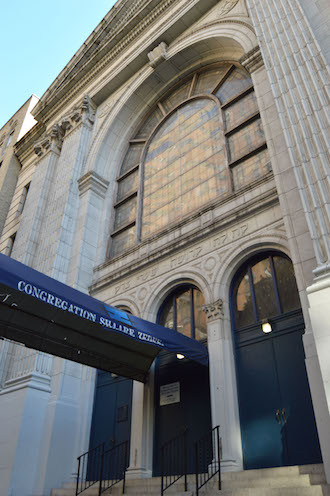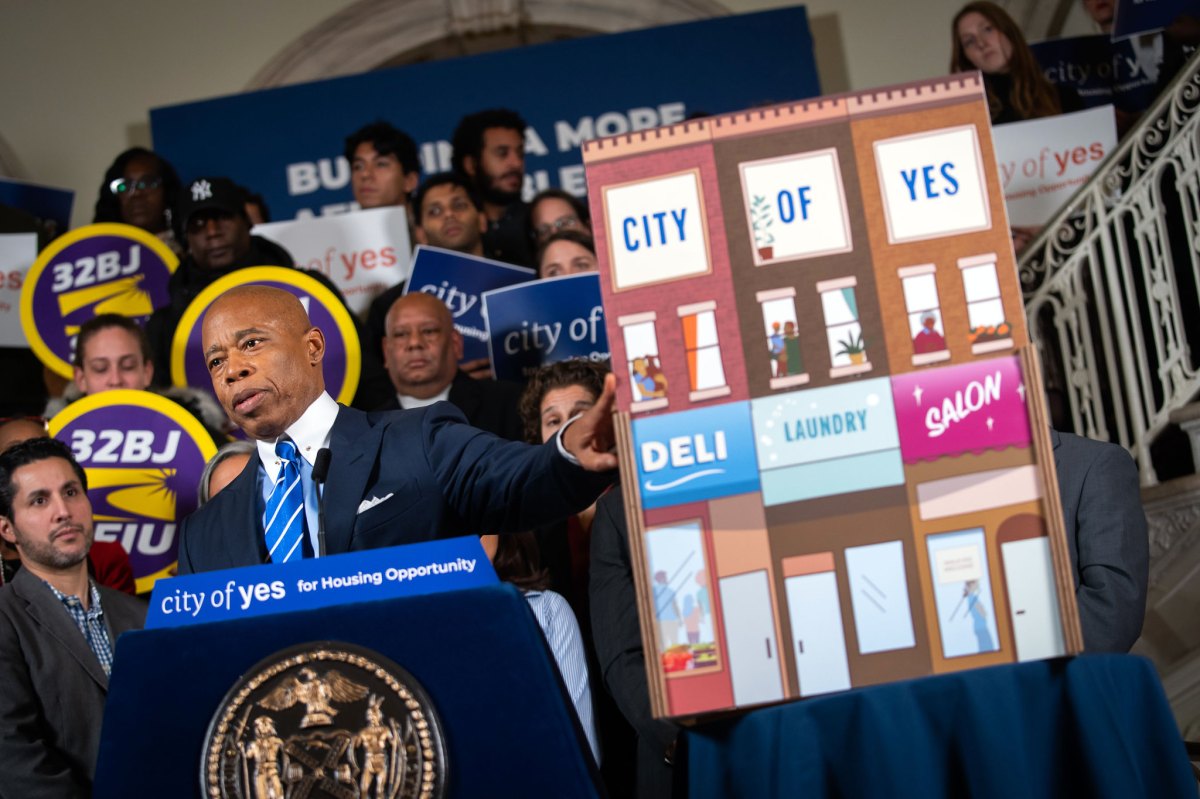
BY JACKSON CHEN | The congregants of an Upper West Side synagogue have come out in aggressive defense of plans to demolish their current building, paving the way for a mixed-use development in its place, as opponents of the plan are falling short in their hopes of moving the West 93rd Street structure toward landmarked status.
Community Board 7, with no specific plans for any new development in front of it, has no role at this point in weighing in on the controversy, but its full board meeting on September 6 became an arena for members of Congregation Shaare Zedek to face off against opponents from the West Nineties Neighborhood Coalition.
Plans to demolish the synagogue, located at at 212 West 93rd Street, came to the attention of CB7 from the coalition during an August 17 meeting of the board’s Land Use and Housing Committees.
According to Ronna Blaser, a coalition member, residents living near the synagogue received an April notice that the building would be demolished to make way for a 14-story development, with the lower three floors serving as the new synagogue and the remaining 11 comprised of condo units.
While there are no plans yet filed with the Department of Buildings and the April notice gave few specific details, residents concerned by the information they did have came together in the coalition and were able to uncover the fact that Ornstein Leyton Company, a Long Island-based development company, is the prime mover behind the project, on which the synagogue can currently move forward as of right.
As the opposition focuses on landmarking a building that dates to 1922, congregants on hand September 6 warned that the property’s redevelopment is necessary to sustain the congregation on the Upper West Side.
According to the synagogue’s president, Michael Firestone, Shaare Zedek’s situation leaves congregants with two stark alternatives — redevelopment or an empty structure that no one can afford to maintain.
“The synagogue’s sole asset is the building and the land underneath it,” Firestone said. “The sale of the building is the only way to be solvent. If you landmark the building, the synagogue will be dissolved, that is a fact.”
According to Rosalind Paaswell, the former president of Shaare Zedek, the synagogue building is seriously deteriorating and is in dire need of revitalization.
“If preservation of this site is the ultimate consideration, it must not be for a totally unremarkable, crumbling building,” Paaswell said, “but the preservation of an institution that is a long-standing part of this community.”
Paaswell, who said she has worked in economic development for the past 40 years, asserted a new building would not be a matter of one party benefitting at the expense of the community, but rather a fiscally sound Shaare Zedek, in new quarters, contributing to the neighborhood’s stability.
“We’re talking about a new building that will strengthen our longtime prospects as a vital center of Jewish and community life in the region,” she said.
Paaswell, now an honorary trustee at CSZ, added the congregation previously explored a development where it would preserve the current synagogue but that it was “financially infeasible” and no developer would consider making a proposal.
Many congregants who spoke up at CB7 joined Paaswell and Firestone in saying the building is in poor condition, noting it even lacks wheelchair accessibility, and urged neighbors to consider the faith community that makes up Shaare Zedek, not the building itself.
“It will be left a crumbling, abandoned building on 93rd Street,” Firestone said. “What’s worth more to you, the building housing the synagogue or the people who pray at that synagogue?”
On the other side, the opposition group remains adamant on landmarking what they consider a significant architectural structure in the neighborhood.
According to Blaser, they recently submitted a request for evaluation with the Landmarks Preservation Commission, but received a tepid response.
“[LPC] said the synagogue probably merits designation but it’s not a priority but to be reconsidered at another time,” Blaser said.
According to the LPC, the property could be considered for designation after additional research, now being conducted, has been completed. The coalition, meanwhile, is working with Borough President Gale Brewer and City Councilmember Helen Rosenthal to press for a designation now.
Julie Jacobs, a coalition member, emphasized that she and her allies are sympathetic to the financial pressures facing the synagogue. Both she and Blaser said opponents of demolishing the building welcome the opportunity to work with the synagogue to find ways to assist in maintaining the historic building.
“I just think there is a better way than tearing down the synagogue, a beautiful building,” Jacobs said. “It just seems like the wrong path forward.”
Congregants, however, pointed out that on top of the burden of keeping up the Upper West Side synagogue, they also own Bayside Cemetery, a 16-acre burial ground in Ozone Park, Queens. Russell Steinthal, a CSZ member and an attorney with Axinn, Veltrop & Harkrider, said CSZ is the “only and sole support for the cemetery,” which he said faces its own financial difficulties.
Revenue realized through the new development, Steinthal said, would enable congregants to sustain both a spiritual home and the cemetery.

































